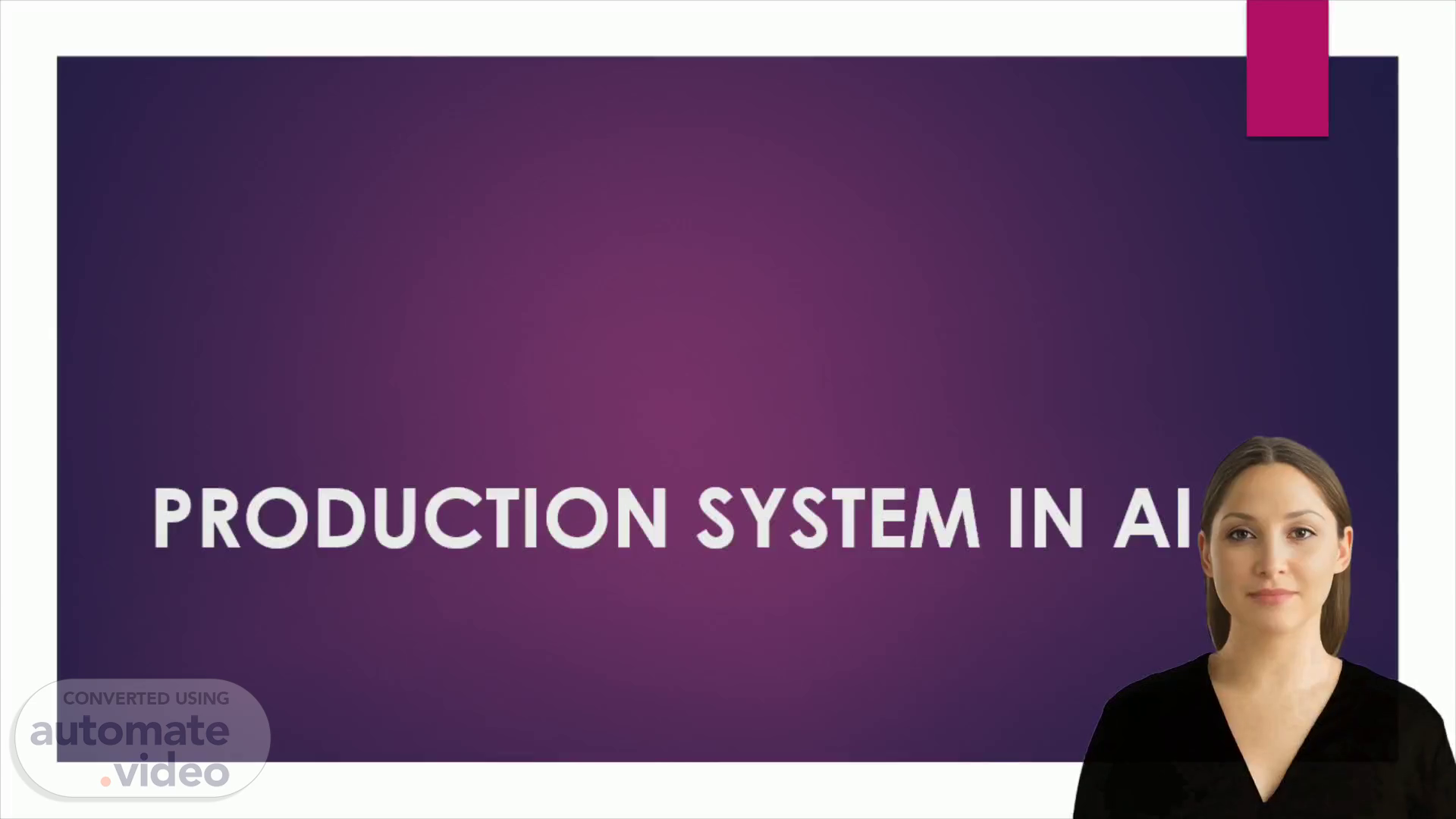
PRODUCTION SYSTEM IN AI
Scene 1 (0s)
[Virtual Presenter] Good morning! Today we are going to delve into production systems in the context of Artificial Intelligence. We will investigate how these systems use world wide databases, production rules, and control systems to generate influential AI-based smart systems. Let us begin!.
Scene 2 (22s)
[Audio] AI production systems are a type of knowledge-based system that apply a series of rules to automate decision-making processes. Typically, these rules are conditional statements that become active when certain conditions are fulfilled. This structure or framework enables the AI system to decide based on a set of conditions, and to effectively work on a problem by selecting data, assigning specific tasks, and controlling the order of operations..
Scene 3 (52s)
[Audio] AI production systems are complex structures enabling computers to take on more advanced tasks. Composed of two main components, these systems comprise a set of rules and one or more knowledge databases. The rules feature a pattern on the left side, determining if the rule applies, with a description of the operation to be performed if it is applicable. The knowledge databases store information relevant to the task, from permanent data to details of the current problem, aiding the computer to make informed decisions and complete more sophisticated operations..
Scene 4 (1m 30s)
[Audio] Production systems in Artificial Intelligence provide modularity, allowing rules to be tailored and updated easily. They also feature a separate control system and knowledge base, making them a viable model to imitate the problem-solving skills of a human. This could be beneficial in environments that require real-time solutions, with language independence making the range of potential applications widely varied..
Scene 5 (1m 58s)
[Audio] Production systems in AI have several drawbacks. Firstly, they tend to be opaque due to the combination of production rules, leading to a lack of rule prioritization. Additionally, production systems are unable to store the outcome of a problem for future use, meaning no learning is possible. Conflict resolution is difficult, as any new rules added to the database must not conflict with the established ones. Therefore, proper management of the system is necessary..
Scene 6 (2m 32s)
[Audio] An AI-based intelligent system requires an architecture to be capable of performing specific tasks. The architecture of a production system in Artificial Intelligence is composed of a global database, production rules, and a control system. The global database holds the knowledge necessary for the system, while the production rules define the set of rules used for the system's objectives. The control system governs how the components collaborate with each other to produce the desired outcomes. With the architecture constructed, the AI-based system is then able to receive input, process the data, and generate a response..